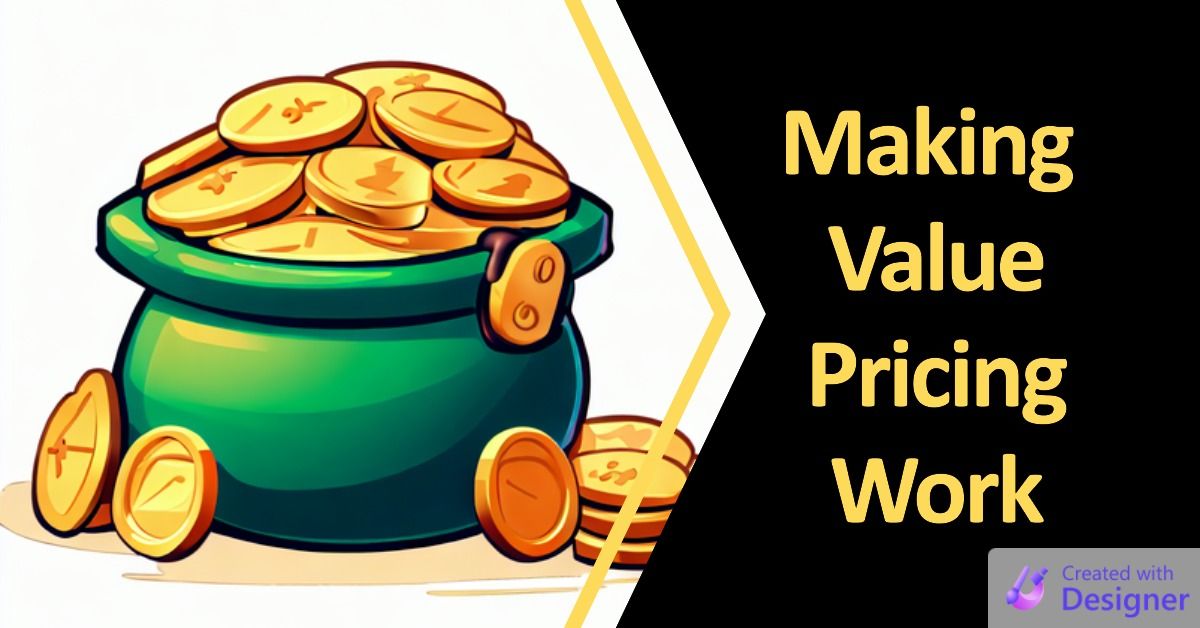Reader Question: How Do I Make Value-Based Pricing Work?
Value-based pricing is not a synonym for fixed-bid pricing. To make it work, you need to focus on the business value you can generate for the client.

Longtime reader Huy Truong wrote in with a question recently (shared with permission; lightly edited for change in intended audience):
I've been reading a few of Jonathan Stark's articles. Currently, I'm "practicing" fixed rate pricing by using his 5-page project proposal template to justify the business benefits of my projects. This is much harder than I thought, not because I don't know what the benefits are but because it's hard to justify them -- these are the bottom of the icebergs that Joel Spolsky talked about. I wonder if you've written somewhere on your blog how to address them with your clients. For example, should I keep telling my customers that "this is a big deal as it will affect the entire project" even though my clients don't think it's a big problem?
I've mentioned Jonathan Stark multiple times on this blog. His mission in life is to rid the world of hourly billing. One way he recommends to do that is with value-based pricing.
Value Based Pricing in a Nutshell
Stark makes the most succinct case for value-based pricing in his article Twenty Cents Per Keystroke:
“
Doing lots of work does not equate to delivering lots of value.
(Translation: just because something takes a lot of work doesn’t mean you can charge a lot of money for it)
Perhaps this makes intuitive sense to you. I find that the inverse is a lot less intuitive to most folks:
You can deliver a lot of value with a small amount of labor.
(Translation: you can charge a lot of money for stuff that doesn’t require a lot of work)
This is not a cheat or a life hack or a scam.
This is where mutual profit comes from. It is how wealth is created.
At scale, this is how quality of life is improved across an entire society.
”
It's All About the Business Outcome
With that small bit of context out of the way, here is my response to Huy:
It sounds like you are trying to justify the work that YOU will have to do to make the project a success. Frankly, the client does not care. Value-based pricing the way that Jonathan Stark talks about it requires you to figure out project scope last. You start by figuring out how much a project is worth to a client over the life of the project (five years is a good rule of thumb for most large software development projects), divide that by ten, and use that as your price. The price you quote does not correlate to how much work you have to do on your end.
What you seem to be describing is a time and materials fixed-bid proposal. You seem to be saying, "This is how much it will cost me to put this system together and do it the right way." And now I have to convince my buyer that they need to pay this much so that I can build this particular system. Instead, you need to sell your buyer on the value of the business outcome you are promising. Then you just need to be credible enough for them to believe you can deliver on that outcome without getting into the weeds on how you will actually do that.
The real key to making value-based pricing work is to find million-dollar problems that you can solve for $50,000 and then charge $100,000 for them. If that sounds hard, it's because it is. (I've been trying to make it work for years without success.)
All that said, if you are trying to convince the buyer of the value of your solution, then you are going to have a very hard time making value-based pricing work for you. Your clients will tell you what is valuable to them. Even if they won't directly ask for the solution they might want.
Special thank you to Huy Truong for writing in with his question and letting me share it with the world.
